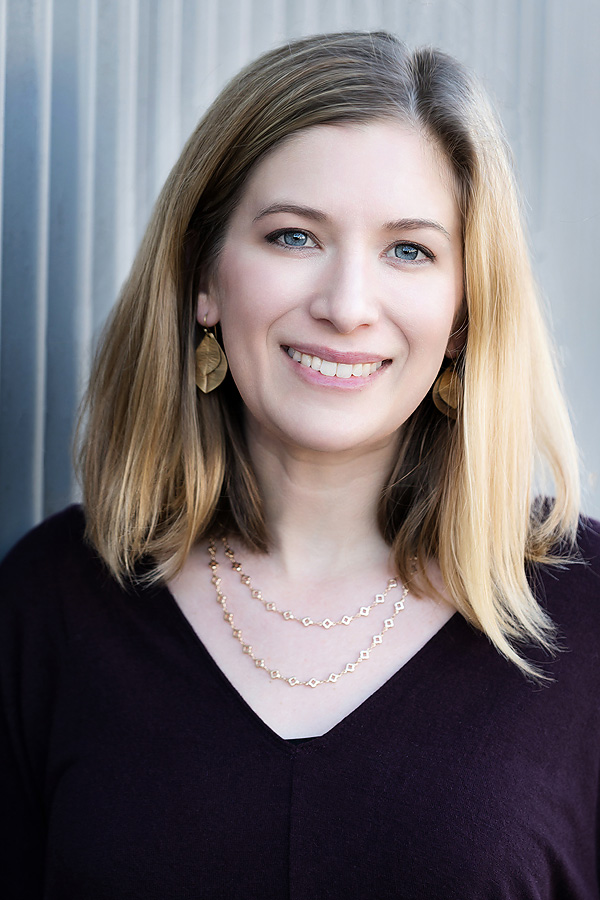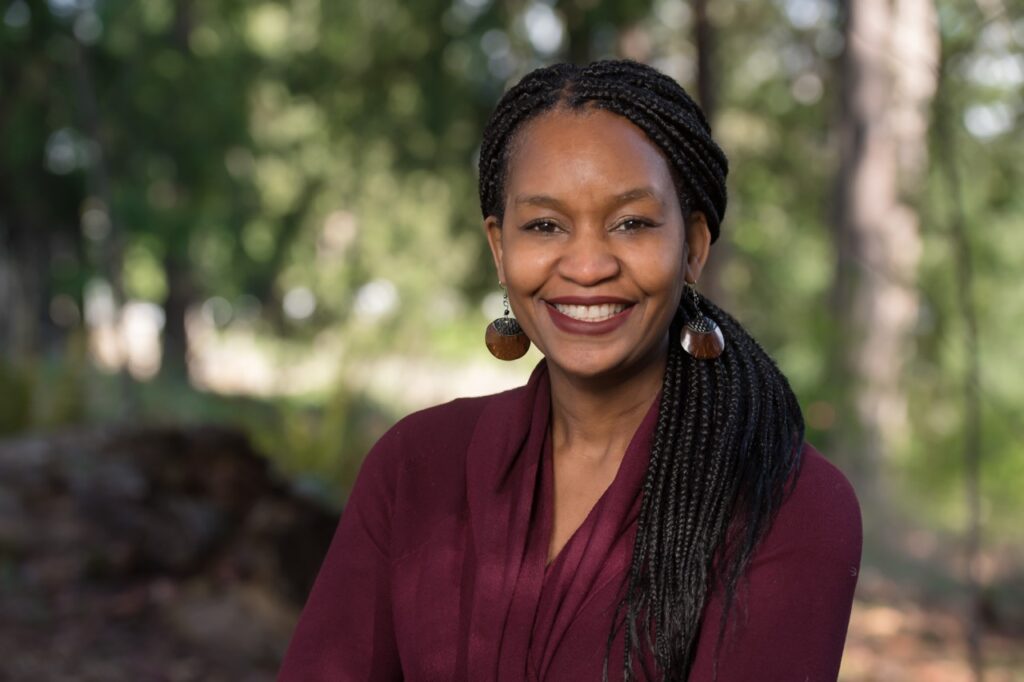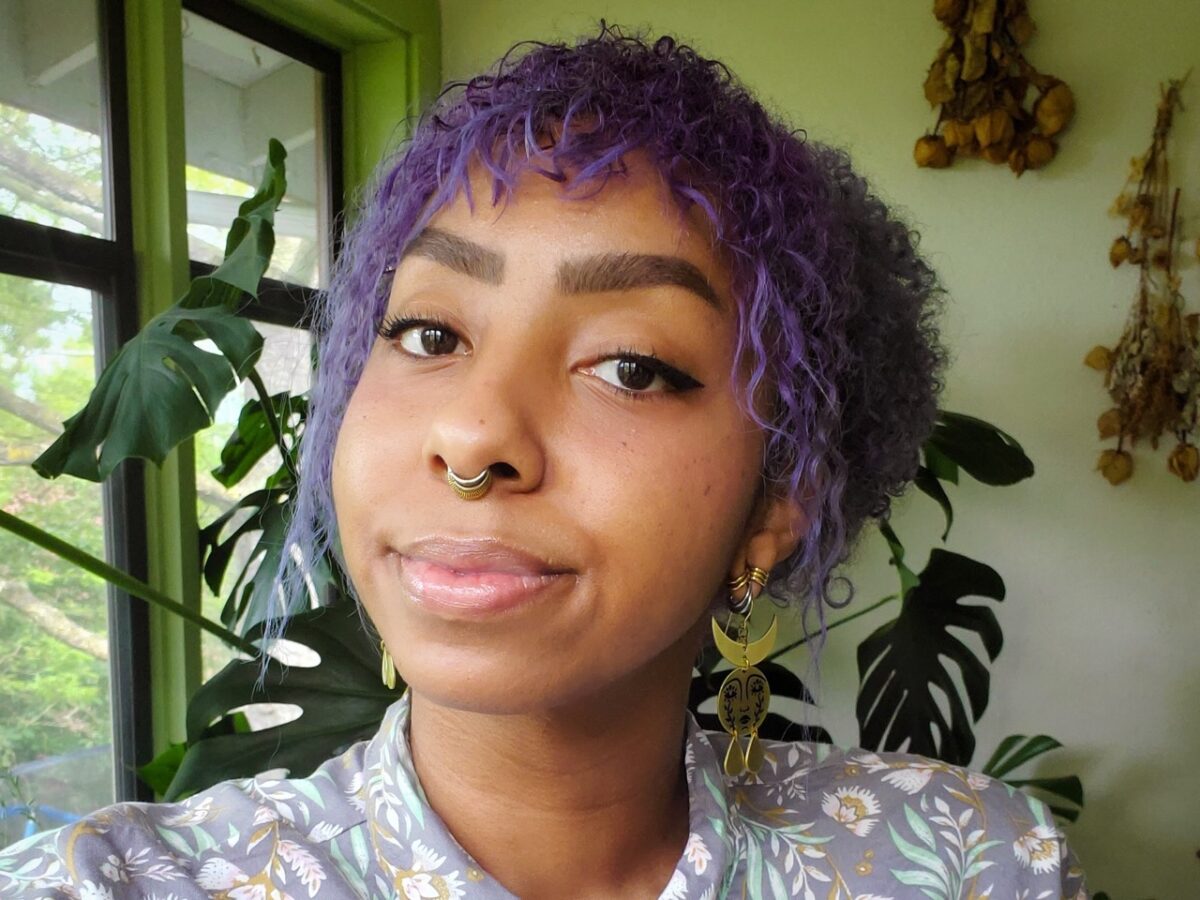For University of Washington Bothell alum Aaron Davis (Health Studies, ’21), questions about health disparities in marginalized populations have been a driving force in their research. In May 2023, Davis’ first research publication, “Racial and gender disparities among highly successful medical crowdfunding campaigns,” appeared in Social Science & Medicine, an international, peer-reviewed journal.
“Research has absolutely been a goal of mine throughout my education and was a driver behind me wanting to attend the University of Washington in the first place,” Davis said. “UW has amazing opportunities for research, particularly at the community level, and was one of the few universities I was interested in that actually paid their research assistants and trainees a fair salary.”
Davis’ journey to publication began in early 2020 when they embarked on a new research project under the mentorship of Dr. Nora Kenworthy, associate professor in UW Bothell’s School of Nursing & Health Studies, and Dr. Shauna Elbers-Carlisle, associate professor in UW Bothell’s School of Interdisciplinary Arts & Sciences and an adjunct professor in the School of Nursing & Health Studies. Davis had become curious about racial biases in medical crowdfunding campaigns during a previous project with Kenworthy.
Leading the research
“After looking at all this data on viral crowdfunding campaigns, I started getting my own questions that were coming up regarding who was in that sample and how representative it was. That was sort of like the birth of my little break from that project,” Davis said.
In 2020, Davis received a Mary Gates Research Scholarship, which encourages students to propose their own projects in a mentored research environment. Though the research was a collaborative project overseen by faculty, Davis wanted to do the bulk of the work from start to finish — from the statistical analysis and written abstract to communicating with the medical/science journal throughout the review process.
“The hands-on experience of getting to lead everything was really impactful for me as a scientist. As a hands-on learner, I learn best when I’m highly involved with something,” Davis said. “Getting the chance to step by step figure out what I’m doing and what my questions are, I feel like it’s my little baby. I was given a lot of autonomy to sort of figure out the direction that I wanted to go.
“The constant affirmation that I received from Nora and Shauna mirrored for me the type of mentor and leader I want to be for others.”
The study analyzed the 827 most successful medical crowdfunding campaigns on the fundraising platform GoFundMe during a specific time in 2020. The team looked at demographics and characteristics of the campaigns, hypothesizing that the most “viral” campaigns would skew toward a young, white and more heavily male demographic.
Analyzing the data
“From a sampling perspective, this was a really fun study,” Kenworthy said. “All the work to date on medical crowdfunding had looked at statistically randomized samples to try and get a representation of what the crowd looks like. This was really the first time that anyone had looked at what is going viral in a systematic way, asking, what is hyper successful?

“It opened up the doors to some really interesting questions about who gets represented and gets heightened attention and who really is earning enough to be on the front page of GoFundMe or to be covered by the news media in the way that these very successful campaigns are.”
The study looked at the data to break down who was represented and the type of campaign, as well as the language used in the campaigns and the social and political environment surrounding them.
When it came to statistics and analysis, Davis turned to Elbers-Carlisle for her expertise and perspectives from her own work looking at racial disparities and the social determinants of health and statistics. The two had previously worked together on the RHealth study, for which Elbers-Carlisle is the principal investigator.
“I had a very clear idea of where I needed that support, just because at the time I was not super strong with my statistics or analysis techniques,” Davis said. “I’ve learned a lot from Shauna’s analysis class about how to use statistical software and really wanted to lean into her expertise in that area to guide how we should go about processing this data and understanding what’s going on.”
A timely topic
Although the team hadn’t expected it when they first began the project, the topic of their research would prove to be particularly relevant during the global pandemic. Around that same time, Black Lives Matter protests had also captured the attention of the nation and beyond, bringing with it additional insight into the social and political nature of crowdfunding.
“It was an interesting time with crowdfunding and race,” Kenworthy said. “We had high-profile crowdfunding campaigns for folks like George Floyd and Breonna Taylor, and at the same time we also had these sort of white nationalists and racist groups that were also crowdfunding. It felt like one of those first moments where crowdfunding became very political and really reflected some of the embedded racisms more publicly than it had in the past.”
When they first began the project, Davis said they never would have expected to be on crowdfunding platforms as a user. Davis’ family was hit hard during the pandemic, however, and their friends and family relied on Davis to set up and manage several campaigns.
“It just became so important to highlight the effort and energy that goes into it. It’s a lot of work, and it’s very inaccessible for some people. You have to be showcasing it all the time,” Davis said. “It’s exhausting, and I could see why a lot of people don’t do it or have to lean on people who have more of the skills or capacity to do it. I was put in that situation, and it was such an interesting place to be in the middle of a global crisis.”
Davis said the experience of running multiple campaigns brought an increased understanding of the hard work that crowdfunding requires, as well as the barriers many people face to even getting on the platform. For those who lack the computer skills or even a bank account to set up an account, crowdfunding simply isn’t an option.
Impacts of social bias
Through analysis, the team found their initial hypothesis to be true — confirming that there are significant levels of racial and gender disparities among the most highly successful fundraising campaigns.
The study found that white men had the greatest representation, with Black and Asian users making up a highly underrepresented minority. Black women, in particular, were significantly underrepresented, making up only 0.6% of highly successful medical campaigns.

“When people ask or question whether racism is a social determinant of health, this is a perfect example where someone’s interpretation of a platform and the deservingness of the beneficiary leads to a decision to support or not support, to highlight or not highlight the campaign, and in doing so produces a disparity,” Elbers-Carlisle said. “This study is a perfect example of the mechanisms by which racism is linked to social determinants of health and health outcomes.”
In addition to the quantitative analysis of the demographics represented, the study also looked at comments and the characteristics of successful campaigns. The team found that crowdfunding can reinforce and amplify racist and sexist perceptions of deservingness. The team members noted that, as with other studies, they found that racial and gender disparities persist in terms of campaign outcomes as well.
“The main takeaway that I really want people to get is that crowdfunding is not an arena that is free from the impact of social bias,” Davis said. “I hope it spurs conversation, especially for the people who run the platforms to consider ways that they could make things a bit more equitable so that individual bias cannot dictate who is getting all of the funding, who’s getting visibility, who gets to be on the front page and have their campaign highlighted.”
The journey to publishing
As the project’s lead, Davis determined when it should come to an end and it was time to submit it for publication.
“I feel like I could still write additions to this paper. There’s still just so much going on in the world of crowdfunding,” Davis said. “Once we got our narrative and analysis down, we were able to take a step back and look at the work, look at the data, look at the campaigns and look at the story that we were able to craft, and it felt pretty complete at that point.”

Davis said it was important to them as well to ensure the publication was accessible to a public audience, not just scientists and public health professionals. This required many edits to get the paper’s tone and the language just right, while also adhering to the expectations of a research journal.
“The journey to publication has been a long one. I wanted to make sure I was completely hands-on with each step of the process so that I could get the most out of this learning experience,” Davis said. “I don’t think any class can prepare you for how long it takes to write an original research manuscript, let alone the countless rounds of edits it takes to get to the final paper.
“I feel so satisfied with the journey and the final article because I didn’t have to edit out my voice, tone or message in this larger story I was looking to tell.”
Kenworthy said she makes a point of encouraging her students to publish their research. She also warns them that the timeline for publishing research often takes longer than they would expect — and in Davis’ case it took even longer due to the pandemic.
“It was such a rich learning opportunity, and I hope that it serves Aaron well with the many future papers that I’m sure they’re going to publish,” Kenworthy said.
Critical recognition
“Sharing this work with my family and community and having them not only understand the work but appreciate the importance of the topic has easily been the greatest takeaway from this process,” Davis said. “I definitely came out of this feeling more confident in my ability to publish future research.
“Translating science in such a way that everyone can benefit from the messages and takeaways has always been my intention, and it is such a joy to hear that I’ve accomplished that.”
Davis said it was particularly rewarding when they saw their research cited by NPR, as well.
“It feels amazing to have a major media outlet like NPR pick up on this work,” Davis said. “There aren’t a great deal of outlets discussing crowdfunding phenomena, let alone the intersections of crowdfunding and racial disparities, so it was a great surprise to have my work cited through such a popular outlet.”
The main takeaway that I really want people to get is that crowdfunding is not an arena that is free from the impact of social bias. I hope it spurs conversation, especially for the people who run the platforms to consider ways that they could make things a bit more equitable so that individual bias cannot dictate who is getting all of the funding, who’s getting visibility, who gets to be on the front page and have their campaign highlighted.
Aaron Davis
Dedicated to doing more
In recognition of their dedication to the most vulnerable communities, Davis was also named UW Bothell’s Alumni of the Year in 2022. And Davis plans to continue doing community-based research into disparities experienced by populations that have historically been marginalized and to design community-led interventions for better health equity.
“As a first-generation Black student, I couldn’t imagine breaking into research or having the opportunity to be exposed in such a dynamic and profound way as an undergrad. It’s shaped my outlook of what I could do in science in the future and how I could contribute,” Davis said. “It also opened my eyes to the breadth of research that can be done on racial disparities.
“It’s something that truly, profoundly impacted me and the way that I moved through community spaces and just the kind of science that I want to contribute to the world.”
Last month, Davis graduated from the Epidemiology Program at the UW’s School of Public Health with a master’s degree in Public Health. Davis is taking the next year off but next intends to pursue a doctorate in public health.




